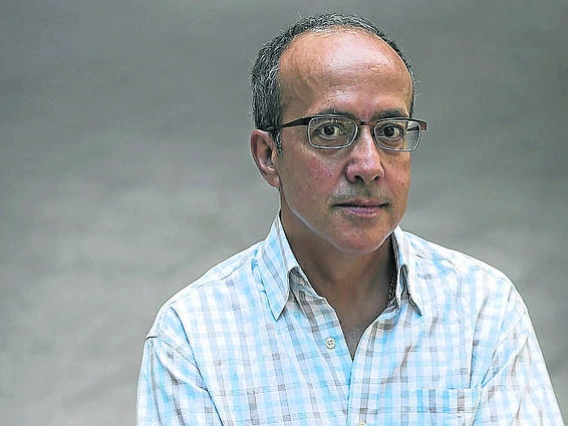
Jaime Fatás Cabeza, Director of the Translation and Interpretation Program in the UA's Department of Spanish and Portuguese, discussed the fundamentals of interpreting in an interview with the Spanish newspaper Heraldo.
Undergraduate students in the Translation and Interpretation Program gain the fundamental philosophical, theoretical, practical, and technical areas and skills discussed in the interview, while preparing for careers in high demand.
Read the interview below, translated from Spanish to English by Fatás:
You have been living in the United States for over thirty years. In Europe, understanding the United States is difficult.
Some of the things that are happening lately, due to their irrational and hostile nature, are difficult to understand. This government flexes its muscles to intimidate and assert itself. It is not seeking consensus or operating in a rational way.
You are a university professor, you run a degree program that prepares interpreters for the healthcare and legal sectors. Is the Spanish language advancing in the United States?
It is making progress, but there are formidable barriers. Latinos/Hispanics are the principal driver of demographic growth, and the Spanish language is essential for democratic coexistence in many states.
And the barriers?
I work in Arizona, a state where English is the only officially recognized language. In my county, 50 percent of the population speaks Spanish, but Spanish, a heritage language, does not have official support. It is discredited and relegated to the family context.
Does society demand more and more translators and interpreters?
A plural and democratic society, yes. A good translation or interpretation is the first step toward reliable and quality information.
What qualities should a good interpreter have?
Superior linguistic skills, deep knowledge of the ethical aspects involved and of interpretation techniques, and technological sophistication.
And a good translator?
A hyper-literary knowledge of languages. In translating poetry, knowing the forms and tropes of each language well is a must. It is not the same thing to be a translator as an interpreter. Not everyone can be an interpreter; in order to become an interpreter, it is necessary to coordinate cognitive and motor abilities to process information at the same speed at which it is received.
Google automatic translation works better and better. In the future, will translators and interpreters be replaced by technology?
They are already being replaced by automatic translators that use technologies based on artificial intelligence, chains of algorithms and extensive databases, big data. The results are surprising ... but not perfect.
Why?
Because so far they can’t cope with personal variation. In many cases, dehumanization represents ethical conflicts that we need to confront. Not everyone knows how to use technology. There are many regional Spanish variations in the United States. It is not the same to translate or interpret for Spanish-speaking Puerto Ricans living in New York as for a Mexican-born population in San Diego.
You mentioned ethical values. Are they really necessary?
They are fundamental. To be an interpreter or translator, it is essential to put yourself in the other's place and think like them, capture the ideas you want to transmit, and proceed in a dialogical framework of mutual respect. Keep in mind that I work in the healthcare and legal sectors, where access and nuances are very important. In meetings with doctors and judges, it is not unusual to encounter large hierarchical differences in terms of authority, power, and prestige between them and ordinary citizens, especially if they are immigrants.
Ethics are vital, then, and never better said.
We have made a proposal through the National Hispanic Health Foundation to standardize the teaching of medical Spanish. In Tucson we are next to the border with Mexico. It is a hot zone, meteorologically and politically speaking, really in the eye of the hurricane in terms of issues related to immigration. And what we do, providing linguistic and cultural access, besides from being technically and cognitively difficult, is essential for social justice and for a functioning democracy. It is a region with a large Latino/Hispanic population, which recently has been much abused by various government agencies. Our work frequently poses an ethical conflict between fair treatment and law enforcement.

